Next444 Roundtable Report
How do we make tomorrow more sustainable, equitable, fair, and just? On the evening of 5 February scholars gathered in the conference room of Grand Café The Burcht to discuss this grand question at the Next444 Roundtable. Organized by the Young Academy Leiden as one of the final events of the Leiden University 444th anniversary celebrations, the roundtable intended to look forward: what research topics will come to matter to Leiden University in the future?
Political Fragmentation
The roundtable started with pitches by three young Leiden University scholars concerning their research and future questions on three broad themes: Equality, Fairness and Justice; Sustainability; and Big Data. Joris Larik started his pitch on the first theme, Political Fragmentation. He observated that in the romantic age it looked like nation-states were working towards ever further international cooperation, but this seems to be over. Institutions that we took for granted, such as the Security Council, are now in deadlock; and many countries have left the International Criminal Court. Brexit is the latest example of how earlier dreams of integration are now turning to disruption and disintegration. How do we then promote justice and unity in this politically fragmented world? How can we be a frontrunner on the crucial issues of our time, such as climate change, if all attention goes to institutional disruption?
Ethical relations with the non-human world
Andrew Littlejohn called for a fundamental ethical reorientation to human-environment relations. Tracing a humanist perspective back to Enlightenment philosophy, he argued that we have come to think of humanity as an end in and of itself but of the non-human world as a means, or resource, that we can appropriate as much as we like. We are slowly realizing that that perspective is unsustainable. How may we think about a different ethical relation between the human and non-human world? What would it mean to give room to nature, and how could this be realized? New collaborations between social movements and interdisciplinary scholarship will be needed.
DNA Technology
Showing how, in a short period, it has been relatively simple to determine a person’s genetic code, Karin van der Tuin raised pressing questions on advancing scientific work with DNA. Whose responsibility is it to determine what is possible and not possible with DNA technology? If currently this decision is mostly in the hands of doctors and researchers, what role can governments, publics and legal action play? Do we realize the consequences of companies getting hold of our DNA and is there anything we can or want to do about that?
Where to start? Interdisciplinary perspectives
The three presentations were followed by an intensive discussion moderated by Judi Mesman. Audience and speakers debated key topics and questions of ethics and politics, at scales ranging from global action to university policy. Concerning the latter, audience members asked for example in what ways the University can become more just over the next 444 years? More specifically, how can we promote sustainability and how can the university create a space where indigenous peoples and underrepresented groups have a voice? Concerning the ethics of our work, how can scientists reflect more on the possible consequences of their discoveries, instead of leaving ethics issues to Internal Review Boards? We may indeed be cautious about new scientific horizons, where they include increased sharing of personal data. But on the other hand there is also an ethical obligation to pursue scientific discovery for patient benefit.
On a larger scale, where should political and ethical change start if not, anymore, in international legal collaboration? Speakers and audience saw a large role here for social movements and regional initiatives. Summing up the event, Judi Mesman suggested we, as an audience, a university, and a general public, consider justice from a broad and inclusive perspective. In her opinion, interdisciplinary perspectives, in particular, provide different lenses to complicated and difficult topics. As community members of Leiden University, we should consider how we can implement interdisciplinary teaching to our student body.
Photo's of the Next 444 Roundtable Event
-
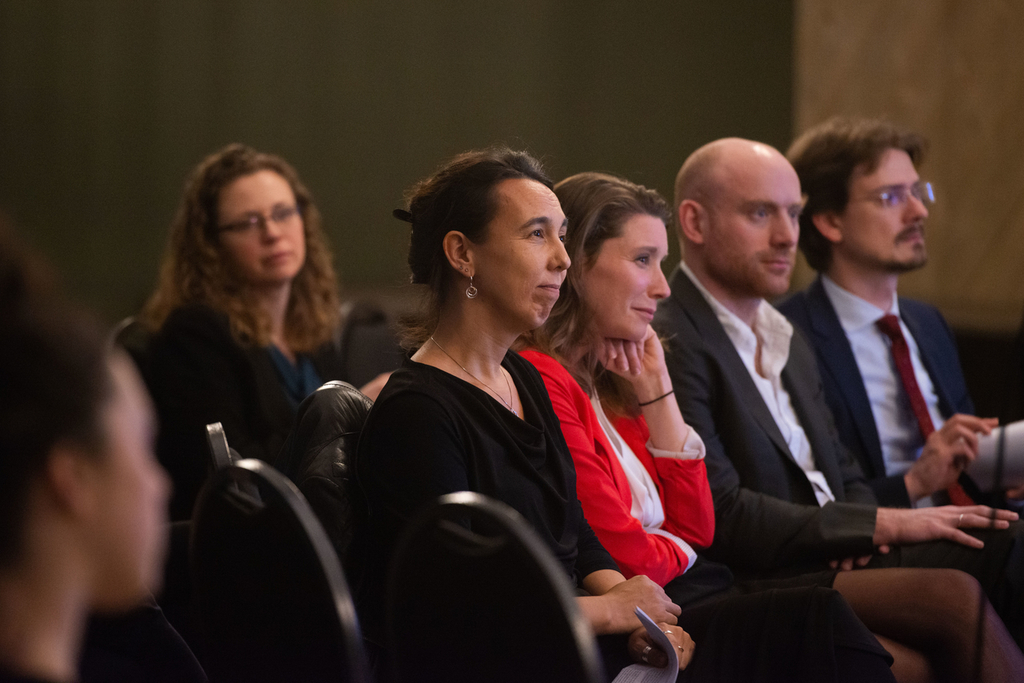
by Eelkje Colmjon -
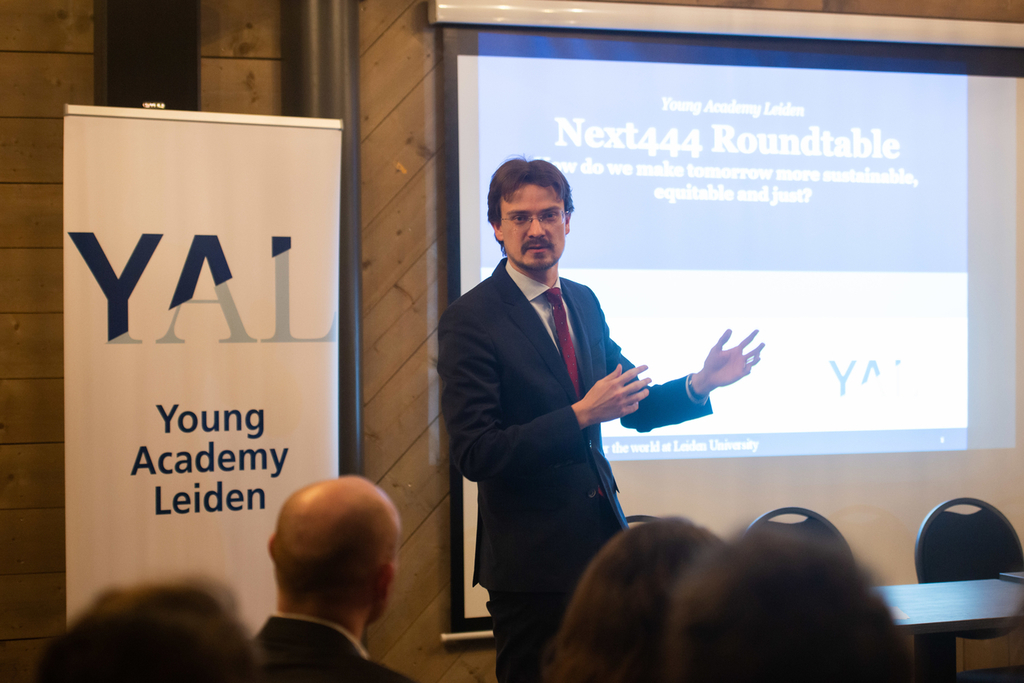
by Eelkje Colmjon -
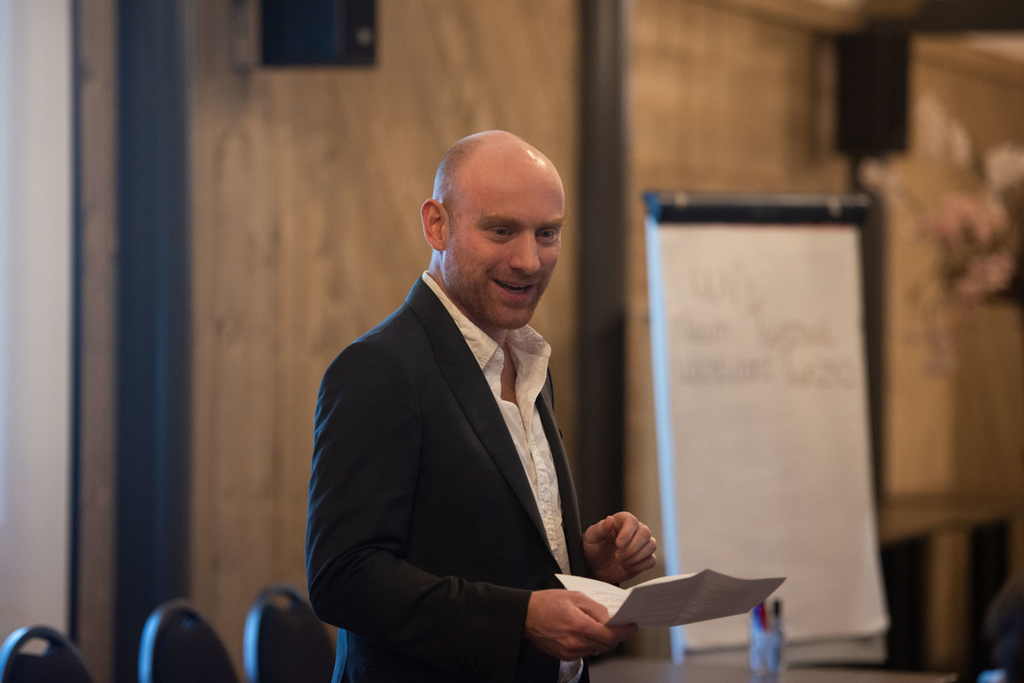
by Eelkje Colmjon -
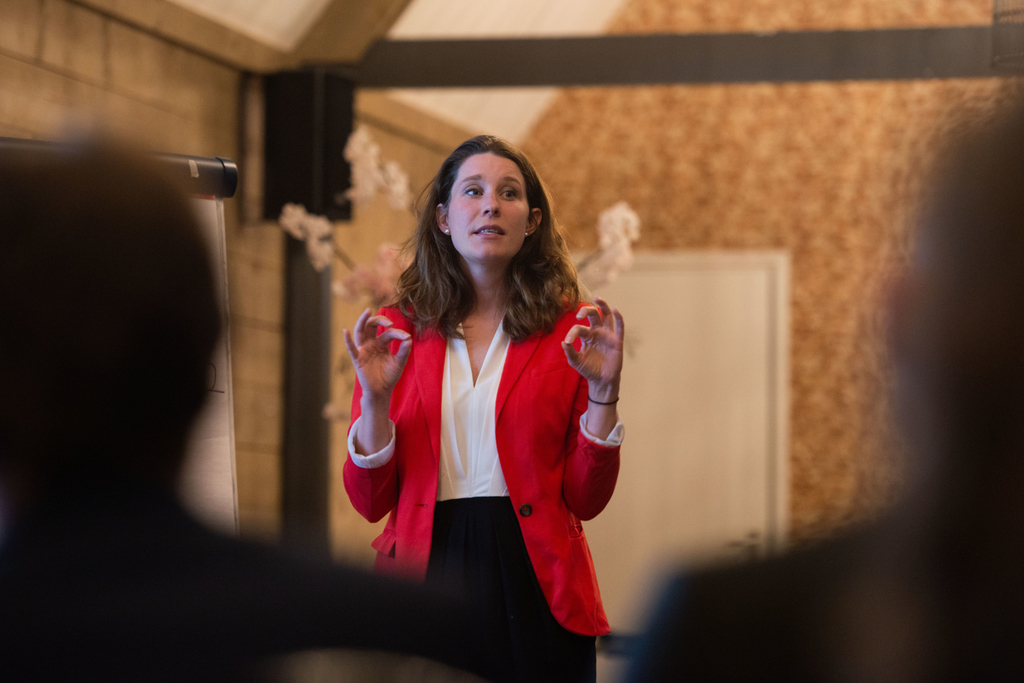
by Eelkje Colmjon -
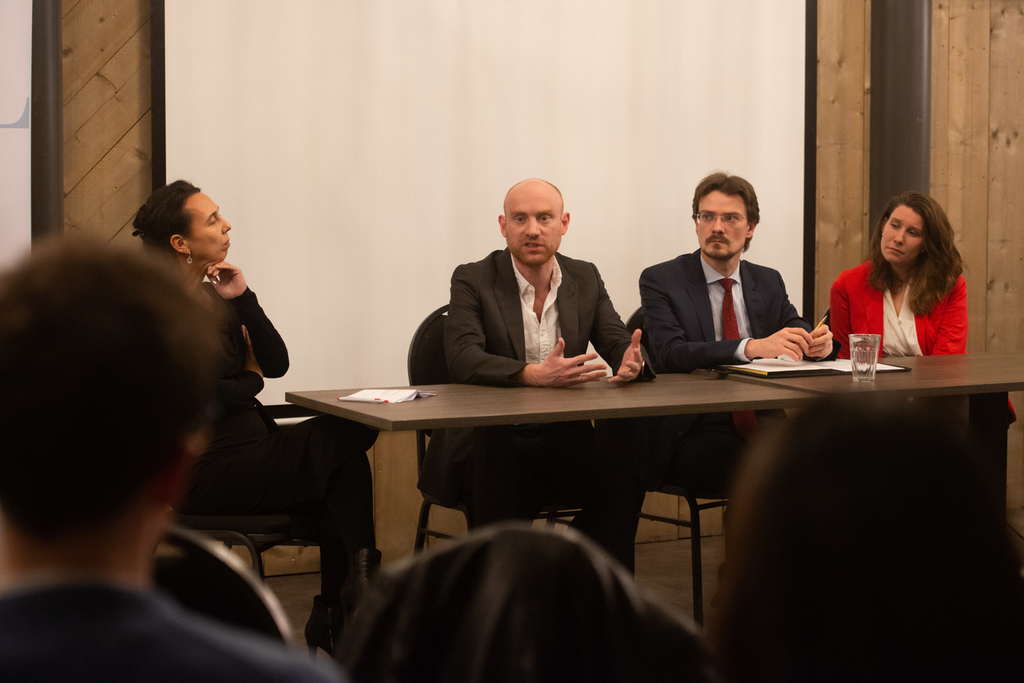
by Eelkje Colmjon -
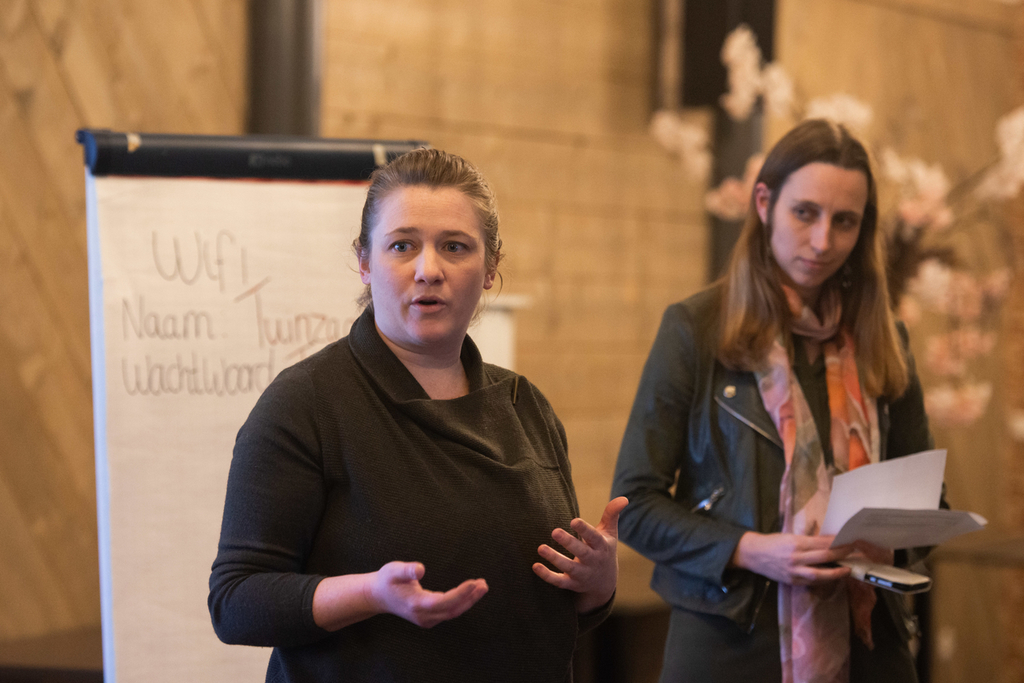
by Eelkje Colmjon
Interested in further discussions with the Young Academy Leiden? Join our interfaculty lunch on March 25, where we will get to know each other and discuss the upcoming new strategic plan of the university.

